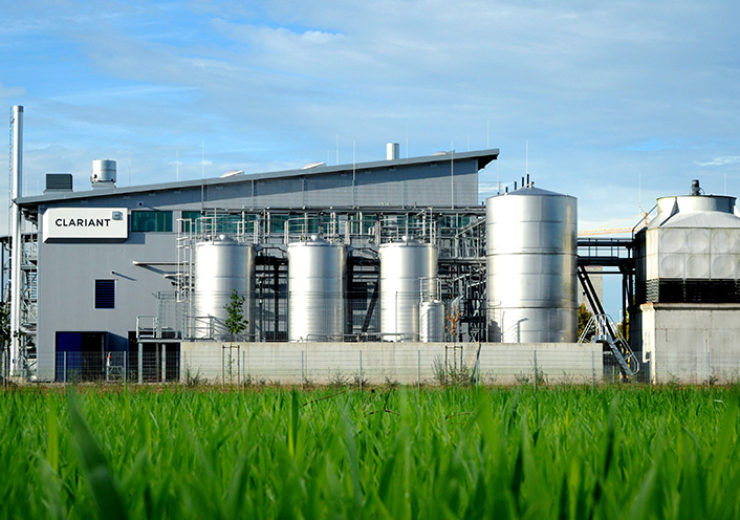Clariant successfully tests the use of miscanthus in producing lignocellulosic sugars and ethanol

Image: Clariant’s processing plant in Straubing, Germany. Photo: Courtesy of Clariant.
Swiss chemicals company Clariant has successfully conducted tests on nearly 30 tonnes of miscanthus, provided by Croatian oil and gas company INA, at its Straubing plant in Germany.
The miscanthus biomass was harvested by INA this February at its demonstration site in Croatia and was shipped for processing at Clariant’s pre-commercial sunliquid plant in Straubing to be converted into lignocellulosic sugars and ethanol.
sunliquid is a trademark of Clariant, registered across several countries. Under Sunliquid, the company produces lignocellulosic ethanol from agricultural residues.
Clariant business line biofuels and derivatives head Markus Rarbach said: “We are very pleased to work with renowned partners such as INA and other GRACE consortium members.
“These feedstock tests constitute an important milestone for Clariant. It is for the first time that we tested miscanthus – a high yielding and robust energy crop – in our pre-commercial plant in Straubing.
“Once again, this showed the flexibility and efficiency of the sunliquid technology platform when it comes to different lignocellulosic feedstock.”
Clariant was approached by GRACE consortium to conduct the tests
INA is a consortium member of GRowing Advanced industrial Crops on marginal lands for biorEfineries (GRACE www.grace-bbi.eu).
The GRACE project received funding from the Bio-based Industries Joint Undertaking (BBI JU) under the European Union’s Horizon 2020 research and innovation programme. The consortium includes 22 partners from universities, the agricultural sector and the industry.
The project is aimed to optimise several miscanthus value chains to produce sustainable products with better market potential and develop miscanthus as a sustainable feedstock resource which could be cultivated on marginal, contaminated or abandoned land.
With such background, Clariant was approached by the GRACE consortium to run tests on miscanthus as a feedstock to produce lignocellulosic sugars and ethanol.
Final results show that the sunliquid technology can convert miscanthus biomass into lignocellulosic sugars and ethanol, confirming the benefits of the sugar process platform.
With a flexible process design of sunliquid, lignocellulosic sugars are claimed to be generated as intermediate product with a potential to serve as a building block for future production of bio-based chemicals.
Once cultivated in marginal lands, the plant can grow rapidly over 15-20 years as a permanent crop, with low mineral content, offering high yield per hectare. Pesticides and fertilizers are also not needed every year, which further adds to miscanthus’ ecological benefits.
